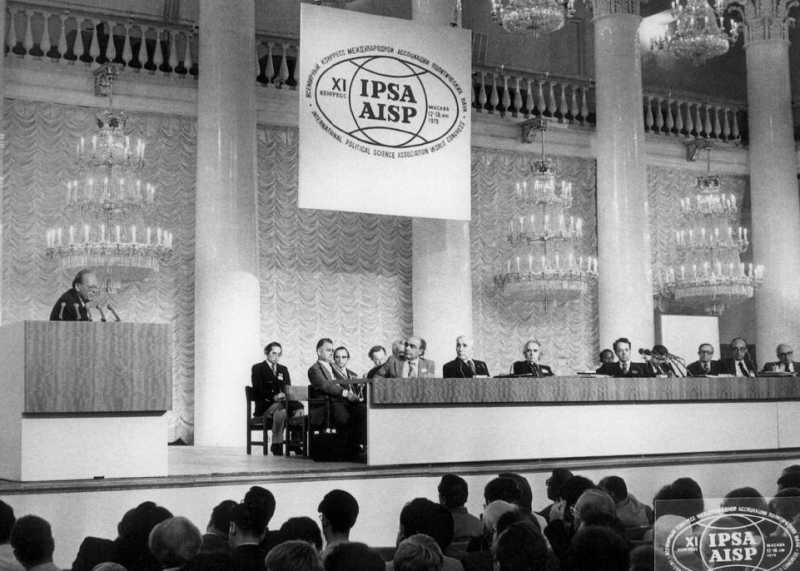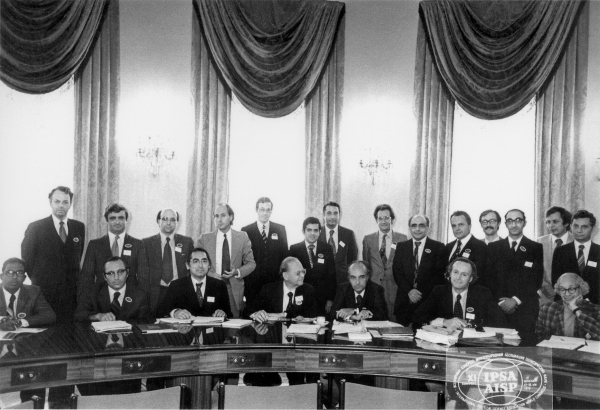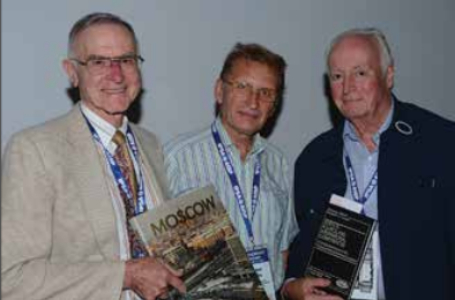1979
In 1979, IPSA made a bold decision by crossing the Iron Curtain. It was one of the first international organizations to hold a flagship event on Soviet territory. The fact that the Association's field of study is politics raised the level of tension even higher. The controversy was not limited to the Executive Committee or the Association. The issue underwent a significant shift from a matter of political science to a political one, and received coverage in the American, Russian, and French news media.
In 1977 and 1978, Yuri Fyodorovitch Orlov and Alexander Ginsburg, dissident academics, were arrested in the Soviet Union, which violated the Helsinki Accords. This prompted a critical debate, leading to scrutiny of IPSA and compelling it to defend its decision and provide a number of guarantees. The Executive Committee issued a press release to emphasize the importance of political science transcending borders and asserted that there was no valid reason to decline an invitation from a long-standing IPSA member. While recognizing global responsibilities, the Committee emphasized that political science could help establish mutual respect among diverse societies. However, it stressed a crucial condition: all legitimate political scientists must have unrestricted access to the 1979 World Congress, with a warning of immediate withdrawal if free access and freedom of communication, discussion, and speech were not respected.
As the Congress approached, the atmosphere became poisonous due to a last-minute visa controversy involving the Israeli delegation, which cast doubt on the event's occurrence. However, the Congress opened successfully and achieved its primary goal of representation by delegations from all IPSA collective members. No political scientist faced visa denials. However, the proceedings of the Congress generated controversy due to differing views on issues such as the limited participation of American researchers, concerns about Soviet propaganda influence, the prevalence of panels on Lenin's thought, and the exclusion of dissident mathematician Aleksandr Lerner from debates. While some criticized these aspects, others highlighted positive factors. These included the presence of representatives from all IPSA collective members, the importation of thousands of papers to the Soviet Union, and overall effective management of the Congress. These factors were seen as positive indicators for the upcoming 1980 Olympic Games in Moscow.
Special Session: Moscow 1979 - The 11th IPSA World Congress of Political Science
At the 2014 IPSA World Congress of Political Science in Montreal, a special session was held to commemorate the historical 1979 IPSA World Congress in Moscow. During the session, Kenneth Janda, Mikhail Ilyin, and John Trent shared their personal experiences from the Moscow World Congress.
Photo (IPSA Executive Committee, 1979-1982): IPSA Executive Committee (1979-1982) at the 11th IPSA World Congress of Political Science in Moscow, U.S.S.R. from 12-18 August 1979
Seated, from left to right: C. A. Perumal (India), Adolf Bibic (Slovenia), Kinhide Mushakosi (Japan), Karl W. Deutsch (Past President, United States), Candido Mendes (President, Brazil), John Trent (Secretary-General, Canada), John Meisel (Canada).
Standing: Richard Merritt (United States), Asher Arian (Israel), Francesco Kjellberg (Norway), Stefano Passigli (Italy), Daniel Frei (Switzerland), Julio Portillo (Venezuela), Ergun Özbudun (Turkey), Dieter Senghaas (Germany), Georgii Shakhnazarov (Vice-President, USSR), Jergy Wiatr (Poland), William Smirnov (Secretary-General of the Soviet Political Science Association, USSR), Jack Hayward (United Kingdom), Jean-Pierre Gaboury (Associate Secretary-General, Canada), Serge Hurtig (France).














